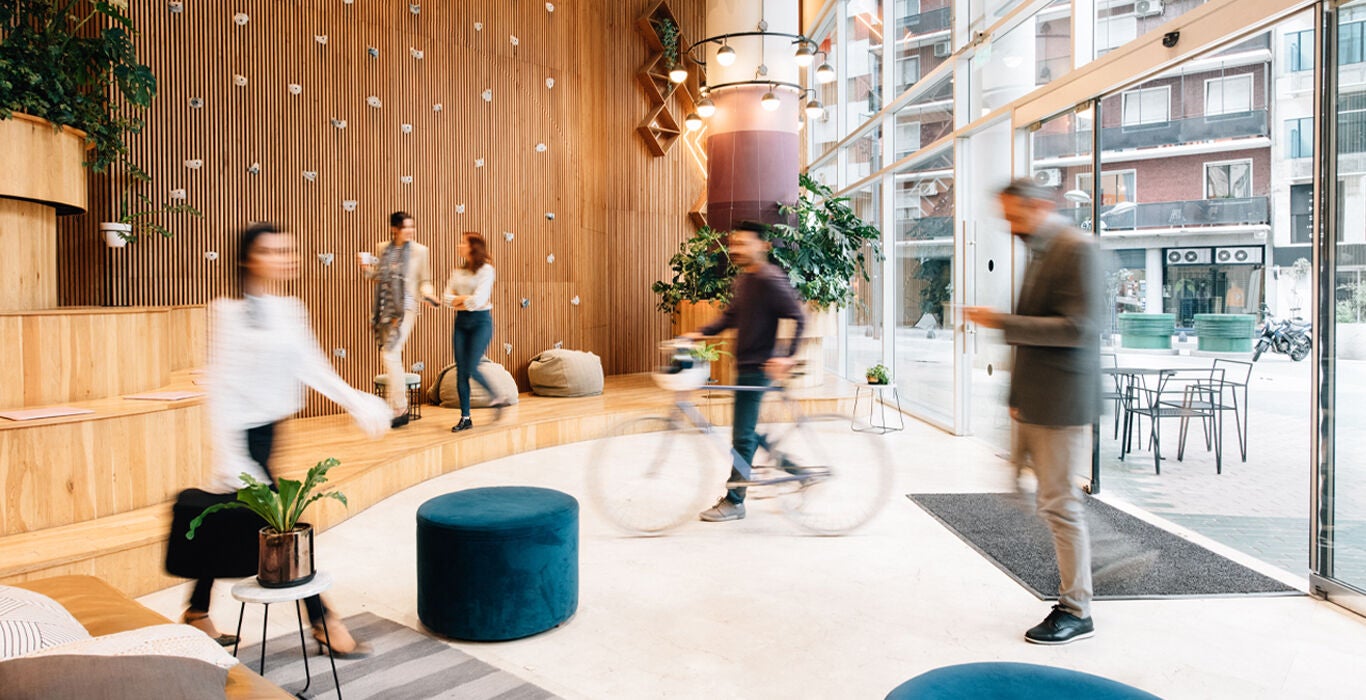Auckland Office Workplace -
Return of the water cooler effect?

Moves by influential corporates and the public service to get feet back under centralised office desks are finding traction.
Calls for the work-from-home (WFH) model to be wound back, and an office-first policy to be reinstated across a wide variety of business sectors, have been gaining momentum around the world, and New Zealand’s not immune.
Led by global heavyweight tech-firm Amazon, echoed by the New Zealand government, and Auckland’s retail advocacy group Heart of the City, it’s claimed that the office-first approach is vital for team learning and productivity, and could even revitalise flailing CBDs.
Advocates say prescribing a full week in-office will help with employee connectivity, brainstorming, mentoring, and learning, while our Public Service Minister Nicola Willis says working from home is not an entitlement for the public sector. More people back in the office will provide transparency, and kickstart CBD businesses.
Despite glimmers of positivity on the interest rate and inflation front, getting the remote work genie back in the bottle will not be without resistance from employees, especially those who have a long and costly commute.
“The what, where and how of work have changed significantly and a hybrid model combining a mix of WFH and in-office has become the norm for so many business sectors,” says Bayleys head of insights, data and consulting, Chris Farhi.
“Amazon is one of the first really large technology firms to prescribe a wholesale office-first policy and other companies will take note. There could be some big shakeups ahead for both workers and office workplace inventory.
“Businesses have been optimising their real estate footprint in response to hybrid work, and this is often enabling them to unlock better quality and more flexible spaces with the same amount of spend”.
The latest (Y)OUR SPACE survey from Bayleys’ global real estate partner Knight Frank suggests that the office’s existential crisis is over, with today’s workplaces reflecting emerging workstyles and with hybrid working likely here to stay.
Knight Frank’s global head of occupier and commercial research, Lee Elliott, says while occupiers are still fine-tuning their prevailing workstyles along with the flow-on implications for the design and delivery of legacy and future workplaces, most models are office-centric.
“Chief among these future workstyles is hybrid, with more than half of all respondents viewing hybrid as their most likely working style three years from now, and 31-percent describing their future workstyles as being either 'office first' or 'office only'.
“Managing complexity, with the office needing to be more fluid and flexible as organisations seek to drive financial efficiency in their space and re-configure it to more collaborative and amenity-based settings, remains the biggest challenge.”
Elliott says progress towards non-allocated desking has been slow, with the initial focus being getting people back in the office and the longer term aspiration being driving efficiency through hot-desking. Amazon has stated it will axe hot-desking and bring back assigned floor plans in its US buildings.
Andre Siegert of Bayleys’ office leasing team says the office workplace market is complex as businesses navigate a path to the most effective operational models. With the job market softening, business owners may have the upper hand around office attendance.
“With a larger pool of talent to choose from, they may have more leverage in dictating work-from-office models, especially to enhance collaboration and effective control. “However, many employees have grown accustomed to the flexibility and work-life balance that remote work offers, so employers could expect some push-back and will need to weigh up business needs against employee preferences in the quest to attract or retain talent.”
Siegert says office leasing enquiry and activity remains strong for those sectors reliant on client-facing interaction.
“The education, legal, financial, private healthcare and creative sectors have largely opted for in-office business models for reasons that include discretion, need for direct interaction, security and regulatory compliance – or those with an emphasis on idea brainstorming.
To maximise space efficiency, Siegert says workplaces have flexed to suit reduced numbers of employees in the office at any one time and desk sharing is a lever for achieving space efficiencies.
“Hybrid models have forced businesses to have fewer desks and more flexible, shared spaces that accommodate various work styles.
“This includes collaborative zones with lounge areas, breakout rooms, and tech-enabled meeting spaces balanced with quiet zones and private spaces plus versatile multi-purpose spaces that can flex when needed.
“One of the biggest offshoots of hybrid working is an increased focus on tech’ integration, with tools for virtual and hybrid meetings, including advanced AV setups and collaborative software.”
Employee well-being is being addressed with wellness rooms, outdoor spaces, and relaxation areas, while proximity to public transport and dining/retail precincts is also pivotal to the amenity value of workplaces.
At the extreme end of the back-to-the -office scale are the views of Kiwi Chris Ellison, managing director of Perth-based company Mineral Resources, who has banned WFH practices and has provided every on-site amenity thinkable from a gym, restaurants, nurses, doctors and psychologists, and childcare facilities to increase staff attendance, productivity and well-being.
Let’s see how the hybrid versus office-first and office-only showdown plays out in Auckland – and will we see the demise of WFH? Watch this space.